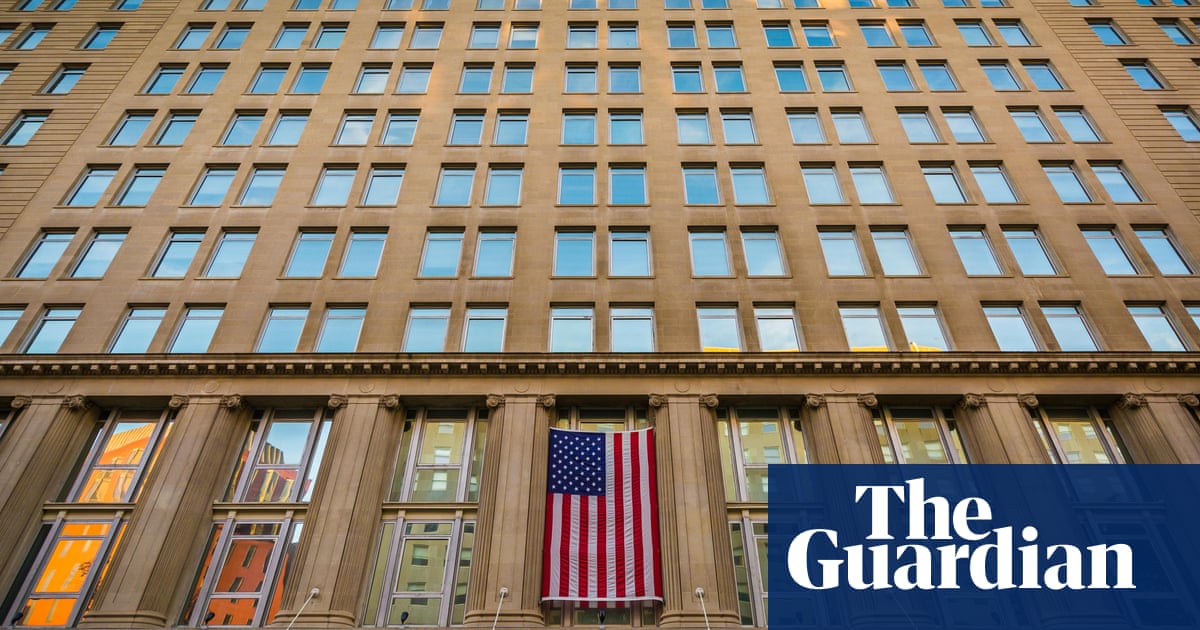Senior officials at the US Department of Veterans Affairs have ordered that VA physicians and scientists not publish in medical journals or speak with the public without first seeking clearance from political appointees ofDonald Trump, the Guardian has learned.
The edict, laid down in emails on Friday byCurt Cashour, the VA’s assistant secretary for public and intergovernmental affairs, andJohn Bartrum, a senior adviser to VA secretary Doug Collins, came hours after the prestigious New England Journal of Medicinepublished a perspectiveco-authored by two pulmonologists who work for the VA in Texas.
“We have guidance for this,” wrote Cashour, a former Republican congressional aide and campaign consultant, attaching the journal article. “These people did not follow it.”
The article warned that cancelled contracts, layoffs and a plannedstaff reduction of 80,000 employeesin the nation’s largest integrated healthcare system jeopardizes the health of a million veterans seeking help for conditions linked to toxic exposure – ranging from Vietnam veterans exposed to Agent Orange to veterans of Iraq and Afghanistan who developed cancer after being exposed to smoke from piles of flaming toxic waste.
“As pulmonologists in the Department of Veterans Affairs (VA), we have been seeing increasing numbers of veterans with chronic bronchitis, pulmonary fibrosis, asthma, and other respiratory conditions,” doctors Pavan Ganapathiraju and Rebecca Traylor wrote.
The authors, who practice at the VA in Austin, Texas, noted that in 2022 Congress dramatically expanded the number of medical conditions presumed to be linked to military service. “But legislation doesn’t care for patients,” they wrote, “people do”.
The article sparked an immediate rebuke from President Trump’s political appointees, according to internal emails obtained by the Guardian. “We have noticed a number of academic articles and press articles recently,” Bartrum wrote, attaching a copy of the journal article. “Please remind the field and academic community that they need to follow the VA policy.”
Cashour, the assistant secretary, wrote that approval for publication in national media was delegated to his office. Local and regional directors were to inform Washington “as soon as possible” when situations exist “that have the potential for negative national exposure”.
Multiple inquiries to Cashour and VA press secretary Peter Kasperowicz went unanswered by deadline.
Ganapathiraju told the Guardian that the article was in full compliance with the VA regulations, which state that employees are encouraged to publish in “peer-reviewed, professional or scholarly journals”. Coordination with public affairs officers is encouraged, but not required, when sharing personal or academic opinions, the rules say.
Ganapathiraju said neither he nor his co-author had yet faced punishment. “We have received emails and messages from other VAs across the country (including doctors, department chiefs, chief of medicines, and chief of staff) supporting our article,” he wrote in an email. “No communication from our local VA or from National.”
Still, VA workers and veterans advocates say Friday’s warnings fit a pattern of censorship by the Trump administration, which critics say is waging a “war on science”. Since taking office, Trump administration officials have cancelled billions of dollars in grants funding medical research at the National Institute of Health and the National Science Foundation. Nearly 2,000 leading scientists, including dozens of Nobel Prize winners,signed an open letterreleased in April saying science was being “decimated” by cuts to research and a growing “climate of fear” that put independent research at risk.
Trump issued an executive order on 23 May titled “Restoring Gold Standard Science.” It accused his predecessor, Joe Biden, of misusing scientific evidence when crafting policies on climate change, public health during the Covid-19 pandemic and other issues. Thousands of academicssigned a new open letterthat protested the move, arguing it opens the door to political interference.
On 28 May, the secretary of Health and Human Services, Robert F Kennedy Jr, said he wasconsidering barringgovernment scientists from publishing in top journals, including the Journal of the American Medical Association, the Lancet, and New England Journal of Medicine, calling these publications “corrupt”.
The Department of Veterans Affairs has long been one of the nation’s most important centers of medical research. Funded by Congress with nearly $1bn annually, VA scientists operate at 102 research sites and are engaged in 7,300 ongoing projects, while publishing more than 10,000 papers in scientific journals last year.
VA scientistsinventedthe nicotine patch and the pacemaker and developed the CT scan. The agency runs the National Center for Post Traumatic Stress Disorder, which has pioneered mental health treatments that benefit not only veterans but also rape victims and other survivors of natural disasters and violent crime.
Harold Kudler, a psychiatrist and researcher who served as national mental health policy lead for VA under the Obama and first Trump administrations said the rebuke to the pulmonologists’ article was “powerful in its impact and frightening in the threat it represents”.
It was “another attack on freedom of speech”, he said. “Veterans will suffer because of it. Plus, all research programs will take note.”
